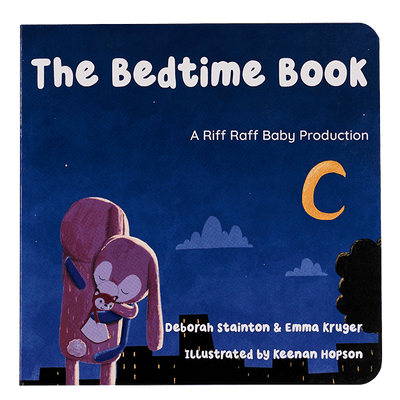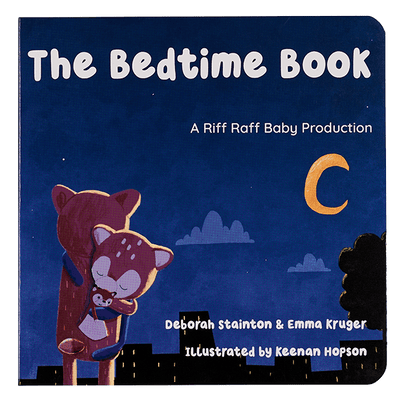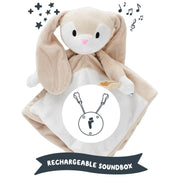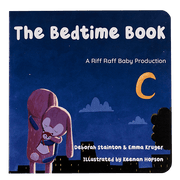5 Gentle Ways to Teach Your Baby to Self Settle
Do you love the idea of a more gentle approach as you support your baby to sleep? Here’s five simple and caring ways to assist your baby on the path to self settling.
As a parent (or mum to be) it probably didn’t take long to come across the terms ‘self settling’ and ‘self soothing’. They’re both important skills however many consider them to be one and the same (it’s easy to do) but self settling and self soothing are very different.
It goes without saying that as parents we want sleep time to be as stress free and calm as possible. Whilst it’s the dream for our baby to doze off independently, it’s rarely as simple as this.
If your little one is struggling with settling and their sleepis being negatively impacted, gentle sleep support can teach your little one to achieve restorative sleep which isimportant for optimal growth and development.
Five ways to support your baby to learn the art of self settling
Read The Cry
As tempting as it is, resist the temptation to automatically pounce as soon as your little one starts to stir. Instead, try pausing to listen and then respond. Give your baby or toddler an opportunity to return to sleep by counting to at least 100 before entering the room. Research supports waiting 3minutes is a golden opportunity.
Respond To The Cry
It’s more than ok to respond to your baby or toddler’s cry but this doesn’t automatically mean taking over. Consider what they’re attempting to communicate. Rather than jumping to conclusions and swooping in, can you respond with verbal reassurance, physical touch or close proximity to reassure your baby they’re safe and just falling asleep or transitioning between sleep cycles?
Consistency
Adding a comforter like a Riff Raff Sleep toy will help to bind a sleep association to the toy. Consistently having a toy present during the same routine, will demonstrate to the child that its sleep time. Utilising the sound of white noise or the lullaby from the Riff Raff will help make this association stronger.
Mantra Cries
Mantra cries are partial arousals between sleep. This is especially important in newborns who spend their time 50/50 in REM and NREM sleep. Newborns grunt, moan, squirm around and even open their eyes but can still be in active sleep. If we rush in too quickly we can disturb them and make them more upset than if we left them for those 3 minutes mentioned above to allow them to try to self settle independently.
Note: This never means ignoring your baby, but rather practice reading the cry as mentioned above.
Confidence
Babies emulate our emotions and if we’re feeling nervous or uncomfortable they’ll pick up on it and mirror it. Be aware of this when talking with your baby. For instance, taking the time to respond with a reassuring “it’s ok, mummy’s here, I know you’re tired and I’m here to support you to sleep” as opposed to a big, exasperated reaction like “mummy’s here! It’s okay! Don’t cry! I am here! Please stop. I am here”.
Can you see the difference in how your baby or toddler may react to these two different phrases?
Although sometimes hard, if we can be mindful to respond rather than react both you and your baby will feel better for it in the long run.
Also be conscious of big, over the top actions like bouncing or trying to distract which can make them more alert or make for an even more overtired baby.
Ultimately, you can always respond to your baby or toddler’s needs both during the day and night. If you want to feed them through the night, you can. If you choose to co-sleep that’s ok too. These are your choices.
If we step back to take in the full picture it’s about helping our baby or toddler as well as achieving better sleep for ourselves.
After all we’re just parents and it’s much easier to handle any emotion if we aren’t so tired, so supporting a baby or child to self-settle, (fall asleep), is never wrong.
Safety Note: Always follow safe sleep guidelines and use under adult supervision with infants under 7 months.
Kelly Martin is a Certified Infant and Child Sleep Consultant and mother of 3 girls. She has a holistic and evidence based approach to supporting families to develop and maintain healthy sleep foundations without compromising on their parenting style. Sleep deprivation doesn't need to be the long-term experience of early childhood. Education and support is available.
Need more information? Check out my website for a variety of blogs to help you on the path to better sleep. The topics I cover include catnapping, early rising as well as fourth trimester realistic expectations and more.
With Love,
Kelly
















































